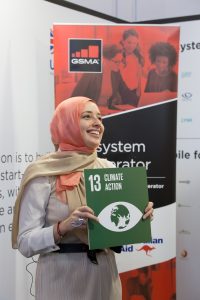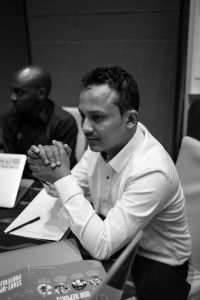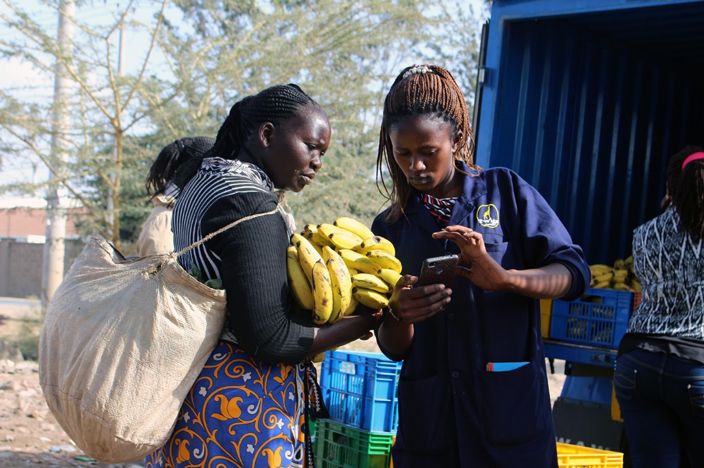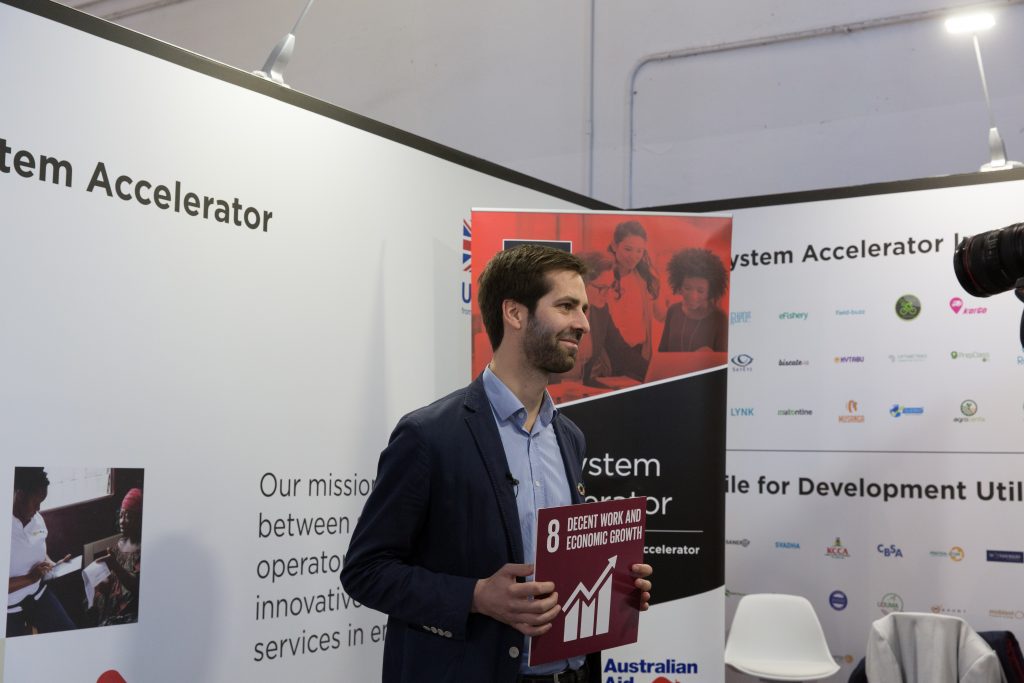Two years! It’s already been two years since we announced the first cohort to be selected to receive funding and support from the GSMA Ecosystem Accelerator Innovation Fund. While this first group of start-ups has now graduated from our programme and completed their respective projects with us, we keep working closely with them and following their progress on a regular basis. To mark this two year anniversary, we wanted to share with you a few updates on some of these start-ups.
Ruangguru, Indonesia – education (in partnership with Telkomsel)
Ruangguru, is a freemium learning management system that helps students prepare for exams using content tailored to the national curriculum, and helps teachers to crowdsource educational content and distribute it to students. In May 2019, the service that was launched in 2014, had hit the 12 million users mark across Indonesia and ranked third on Google Play User’s Choice Awards for the year 2018.
With the aim to continuously develop their offer, Ruangguru recently launched two new services: Ruangkerja – a mobile app-based employee learning service for corporations, and Roboguru – an AI-powered feature through which students using the platform can snap a photo of a problem and instantly get an answer.
Find out more on Ruangguru in our case study.
Raye7, Egypt – transportation (in partnership with Orange)
Raye7 is a culturally sensitive digital carpooling solution for daily commuting in Egypt. Launched in 2015, the platform has seen its service adopted by over 51,900 registered users (both drivers and riders), as of May 2019.
After pivoting their model from B2B to B2C, Raye7 was able to grow its customer base by expanding horizontally in new geographic areas across Egypt but also vertically as the start-up now offers new services beyond daily commuting, like intercity travel, for instance.
Find out more on Raye7 in our case study.
 Raye7’s co-founder and CEO Samira Negm, at MWC 2019
Raye7’s co-founder and CEO Samira Negm, at MWC 2019
eSewa, Nepal – payments (in partnership with Ncell Axiata and Nepal Telecom)
eSewa, is a mobile payment service allowing users to make online payments, pay utility bills, receive money or set up merchant accounts in Nepal. Launched in 2009, the solution has become the largest mobile payment service in the country with over 1.7 million users and over 49,000 agents, as of May 2019.
In order to facilitate the adoption of digital payments in Nepal, eSewa has recently launched a QR code-based mobile payments feature with over 7,500 QR merchants already enrolled and a target to enroll over 40,000 QR merchants by mid-2020.
Find out more on eSewa in our case study.
 eSewa’s COO Roshan Lamichhane, at Ecosystem Accelerator 2018 bootcamp
eSewa’s COO Roshan Lamichhane, at Ecosystem Accelerator 2018 bootcamp
Twiga Foods, Kenya – agriculture (in partnership with Safaricom)
Twiga Foods is a mobile-based supply platform for small- and medium-sized fruit and vegetable vendors operating in Kenya. Since their launch in 2014, the start-up has significantly grown to work with over 13,000 farmers and 6,000 vendors in Kenya. As of May 2019, Twiga Foods distributes over 130 tons of fruits and vegetable per day in the country.
In November 2018, IFC, a member of the World Bank Group, the venture capital fund TLcom, and the Global Agriculture and Food Security Program (GAFSP) announced a $10 million investment in Twiga Foods aimed at supporting the start-up to expand operations and offer new services.
Find out more on Twiga Foods in our case study.
 Twiga Foods’ team with a customer
Twiga Foods’ team with a customer
Prepclass, Nigeria – education
Prepclass is a digital tutoring marketplace that connects learners and teachers in Nigeria. Since its launch in 2013, the Lagos-based start-up has now reached over 115,100 active learners across 36 states in Nigeria while enabling its over 5,500 registered teachers to generate additional income.
Beyond its digital solution, Prepclass has recently develop the concept of a ‘Smart Learning Center’, a physical location where tutors and learners can meet and exchange knowledge in a “controlled Prepclass environment”. Upon admission into a center, each learner is made to undergo a diagnostics test that allows Prepclass to understand their current position on the Prepclass knowledge map in a bid to design a personalised lesson plan. Two of these centers have already opened with another 20 planned to open before the end of the year.
Find out more on Prepclass in our case study.
Biscate, Mozambique – jobs (in partnership with Vodacom)
Biscate is a platform using inclusive mobile technologies to connect skilled workers from the informal sector in Mozambique with customers. Launched in 2016, the start-up offers its over 60,000 customers to access a base of close to 25,200 active skilled workers, as of mid May 2019.
After the cyclone, Idai, had severely hit Mozambique in late March 2019, this live database of informal workers built by Biscate has been used as an activity tracker dashboard.
Find out more on Biscate in our case study.
Optimetriks, Africa – retail (in partnership with multiple mobile operators)
Optimetriks is a field activities real-time monitoring solution for African retail companies. Launched in 2015, the start-up has been providing their solution to a number of retail companies across the continent, including mobile operators. Optimetriks was recently selected to monitor the daily performance of the 10,000 field vendors of Fan Milk, the leading dairy company in Ghana (part of Danone Group).
The start-up offers a sales force automation solution (software-as-a-service), where their mobile application is used by the field sales to report on their activities and retailers visits, enabling consumer goods companies to have a better understanding of their distribution presence and efficiency.
Find out more on Optimetriks in our case study.
 Optimetriks’ co-founder and CEO Paul Langlois-Meurinne, at MWC 2019
Optimetriks’ co-founder and CEO Paul Langlois-Meurinne, at MWC 2019
SafeMotos, Rwanda – transportation
SafeMotos is a localised and safety-focused ride-hailing platform for motorcycles in Rwanda. The start-up launched in 2014, has raised its largest equity funding round to date during the first quarter of 2019 and has now expanded its operations into Kinshasa, the capital of the DRC.
To conclude this blog post, we congratulate our first cohort’ start-ups for their amazing respective journeys so far and thank them for sharing their latest updates with our team.
The Ecosystem Accelerator programme is supported by the UK Department for International Development (DFID), the Australian Government, the GSMA and its members.


